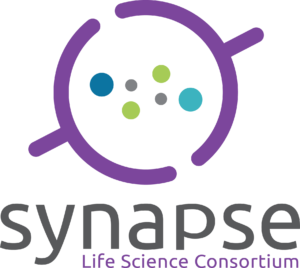Apr-2021
Opinion: The problem is pandemics and Canadian university research is the solution
Published in: Hill Times
By: David Farrar, President and Vice-Chancellor, McMaster University
For more than a year now, the world has been on a crisis footing after the emergence of a frightening new virus for which there was no known prevention, treatment, or cure.
The pandemic’s ravages—including illness, death, economic upheaval, and social isolation—have hit Canada hard, and other countries, with fewer resources, even harder.
Though the virus continues to shift its shape and evade human control, it appears we are closing in on effective prevention and treatment responses.
Since the virus responsible for the pandemic, SARS-CoV2, was first sequenced in January 2020, researchers around the world have mobilized with amazing effort and speed, developing multiple vaccines and finding ways to expedite the necessary trials to prove they are safe and effective.
None of this would have happened without massive infusions of public spending.
The new vaccines are effective against the COVID virus in its current form, but as it continues mutating we will need others. We will certainly need next-generation vaccines to address the next pandemic and annual illnesses such as the flu.
Universities are uniquely positioned to lead the way out of this crisis and to prepare for the ones that will come next.
The speed and degree of progress of research into this new and challenging enemy is impressive, but it is important to remember how it got its start.
It started from a foundation of knowledge that had already been developed through decades of research: knowledge about bats, viruses, other pandemics, vaccines, molecular engineering, diagnostic testing, PPE materials, off-label uses for existing drugs, and many more critical subjects.
The diagnostic tests we have are improving, but they need to be more reliable, faster, and more accessible. We need to know more about how viruses like this jump from animals to humans, how we can make personal protective equipment more effective, and how we can more effectively treat people who do become infected.
All of that work, and more, is happening now, and researchers are starting to make the world safer from COVID.
It’s safe to say that without the momentum provided by these and countless other forms of research, many more people would have become sick or died, and that without the research now underway, we’d be in even deeper trouble.
Over the course of my time as a chemistry researcher, an academic leader at the University of Toronto and the University of British Columbia, and now as president of McMaster, the dynamics of health-related research have changed considerably.
Less than a generation ago, large and small companies had time and resources to do most of their own research and development. More recently, globalization and other forces have compelled businesses to run lean, forcing them to trim their in-house research.
Today, Canada’s leading research universities, known as the U15, conduct about $8.5-billion worth of research every year, including more than four-fifths of all contracted private-sector research.
New knowledge—both abstract and practical—has always come from universities, but now their discoveries are more necessary than ever, especially with human survival at risk.
On our own campus in Hamilton, where COVID has kept us from holding in-person classes for more than a year, researchers have been working flat out to understand and control COVID and its consequences, and to position us for what comes next.
We have pooled and streamlined our McMaster resources into an all-out collaborative effort we call Canada’s Global Nexus for Pandemics and Biological Threats. We are working not just on our own research but with partners at other universities, institutions and corporations.
Knowing that Canadian vaccines, tests, treatments, and equipment still need to be created, improved, validated, and brought quickly to market, we recently allied our efforts with those of our colleagues at the University of Saskatchewan’s Vaccine and Infectious Disease Organization, whose strengths and facilities are complementary to our own.
The university research system was made for this moment.
University research is trustworthy, independent, and conducted in the public interest. It generates innovations that improve the quality of life and our understanding of the world. It creates jobs in the private and public sectors.
University researchers are constantly collaborating—within and between institutions, and with public and private partners. We must work even more closely with industry to speed commercialization—the process of converting discoveries into the products we need to be healthy and safe.
Canadians rely on universities to provide high quality education in tandem with top-level research, assuring that qualified experts are always available to solve known problems and to take on crises that emerge suddenly, as so many are doing now during this historic pandemic.
With mandates and resources from government partners, Canada’s universities are answering the call.
Our role is to serve society, and this is a responsibility we are proud to take on.
Read the full Hill Times article here
